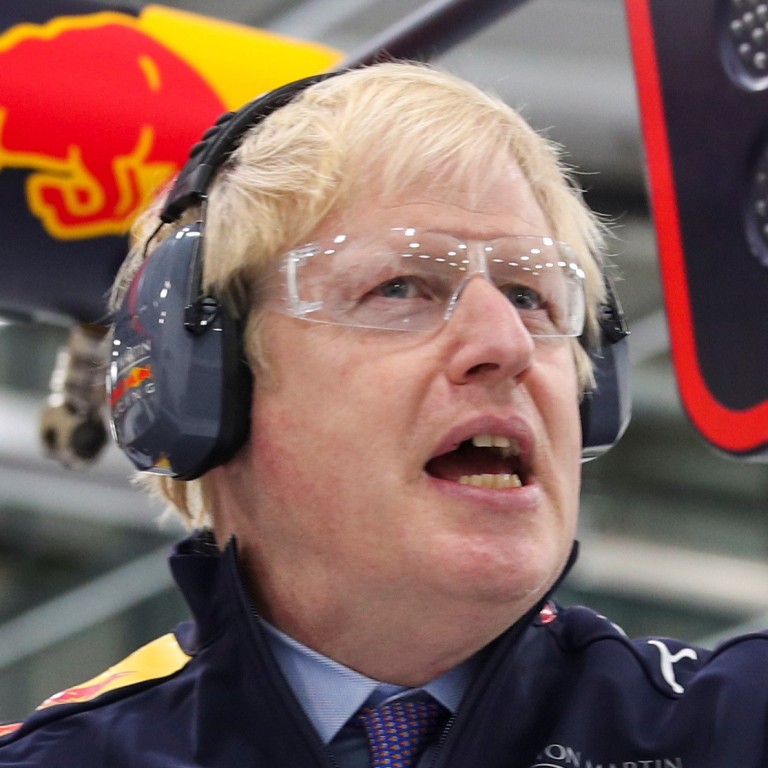
Britain could restrict Huawei from 5G networks, Boris Johnson hints
- Security is vital, prime minister says, citing ability to cooperate with Five Eyes intelligence-sharing partners
- New Zealand, Australia and US have effectively banned the Chinese telecoms firm, while Canada and Britain have not followed suit so far
“I don’t want this country to be unnecessarily hostile to investment from overseas,” Johnson told a news conference in Watford, England, after hosting the Nato summit.
“On the other hand, we cannot prejudice our vital national security interest. Nor can we prejudice our ability to cooperate with our Five Eyes security partners, and that will be the key criteria that informs our decision.”
Huawei has become a lightning rod for tensions between the US and Europe over trade and security policy as Washington threatens reprisals against any governments that allow Chinese equipment to form part of the crucial ultra-fast networks.
Of the Five Eyes intelligence-sharing nations, New Zealand, Australia and the US have effectively banned the company while Canada and Britain have so far not followed suit.
Johnson was responding to comments earlier on Wednesday from US President Donald Trump, who reasserted his administration’s position that Huawei’s involvement in new telecommunication networks is a “security risk, it’s a security danger”.
“I spoke to Italy and they look like they are not going to go forward with that. I spoke to other countries, they are not going to go forward. Everybody I’ve spoken to is not going to go forward,” Trump said following meetings at the Nato summit, including one with Johnson on Tuesday evening.
Shunned in the US, Huawei looks to Russia to invent an AI future
Johnson, in his comments, may have been playing the part of polite host. A full ban forcing carriers to “rip-and-replace” their existing Huawei technology from the entire network is less likely than partial restrictions on the role the company can have in 5G networks.
Companies say a full ban would take years and cost them hundreds of millions of pounds, with that figure increasing every day as they upgrade more masts to 5G. Johnson has pledged to roll out gigabit-per-second broadband speeds to the whole country by 2025 and 5G to a majority by 2027.

The road to a British decision has been long and controversial. Some officials have pushed for tough restrictions as a result of concerns over foreign involvement in critical national infrastructure, while others said this would saddle the telecommunications industry with extra costs and delay technological upgrades.
Huawei said it is still committed to working with Britain on developing its network.
“We’re confident the UK government will continue to take an objective, evidence-based approach to cyber security,” the company said in a statement.
“Our customers trust us because we supply the kind of secure, resilient systems called for by the Nato Declaration and will continue working with them to build innovative new networks.”
For more insights into China tech, sign up for our tech newsletters, subscribe to our award-winning Inside China Tech podcast, and download the comprehensive 2019 China Internet Report. Also roam China Tech City, an award-winning interactive digital map at our sister site Abacus.

